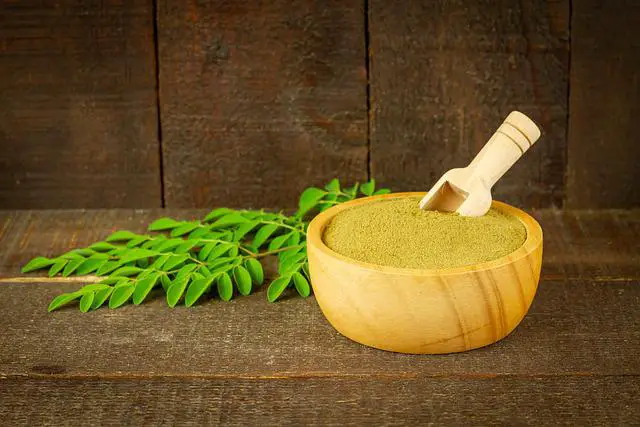A study published by the Centers for Disease Control revealed that more than half of the populace in the USA take herbal supplements every day to treat a variety of ailments. People who are allergic to components in pharmaceutical medications take herbal remedies as herbs have fewer adverse effects and promote overall well-being, even when used for a more extended period.
Herbal supplements can help improve immunity without causing adverse effects and give symptomatic relief, especially when dealing with allergies. Plants and their oils, roots, seeds, berries, or flowers are used to make herbal supplements that have been in use for years. And these days, you can get them in different forms. So, what should you know about herbal supplements? Keep reading about it till the end.
Supplements Come in Many Forms
Dietary supplements, in powder, liquid, or pill form, have almost the same goal. It mainly helps to complement your diet for you to acquire adequate nutrients and improve your health.
At least one dietary component is present, such as minerals, vitamins, herbs, amino acids, botanicals, or enzymes. Some of the supplements are available as part of a multivitamin. It can save you from taking too many tablets every day, but they can also be purchased separately.
Some of the common dietary supplements include:
- Calcium
- Fish oil
- Echinacea
- Ginseng
- Garlic
- Vitamin D
- St. John’s wort
- Green tea
Kratom can be used as an herbal supplement to alleviate sleeplessness and anxiety, but its research is mixed. It is typically harmless, you can buy kratom online.
Some Supplements Are Effective, While Others Are Not
There is also a reason why supplements are so popular. They do work on us sometimes. There is evidence that some supplements, in addition to a good diet, can help your general well-being with little to no risk.
The following are some examples of supplements that may be beneficial to your health:
- Vitamin B12 can aid in the health of nerve and blood cells, DNA production, and the prevention of anemia.
- Folic acid can reduce congenital disabilities when it is during pregnancy
- Vitamin D can strengthen bones
- Calcium can promote our bone health
- Vitamins C and E is capable of preventing cell damage
- Fish oil is best for supporting heart health
- Vitamin A can slow down vision loss due to age and muscular degeneration
- Zinc has been shown to improve skin health and decrease eyesight loss due to age-related macular degeneration.
- Melatonin can help to counteract jet lag.
Despite a large amount of research on supplements, the scientific data isn’t apparent. Remember that most studies show that taking multivitamins won’t help you live longer, slow cognitive impairment, or reduce your risk of cancer, heart disease, or diabetes.
Making promises that supplements would treat, diagnose, prevent, or cure diseases is banned.
Furthermore, the products you purchase in stores or online may vary from those used in trials, making findings potentially deceptive.
Check What’s in Herbal Supplements
Do your research before buying herbal supplements because many products available in the market use synthetic variants. You must lookout for products that are highly available on the market.
Make sure that the supplement labels include this information:
- Name of the supplement
- Manufacturer’s or distributor’s name and address
- Complete list of ingredients
- Serving size, amount, and active ingredient
If you cannot understand something on the label, you better ask your doctor or pharmacist to explain.
Are Herbal Health Products Safe?
Herbal health products from a well-known brand are entirely safe for general consumption. Before using, those with specific health problems (or on medication) should check their doctor. It’s also better to be aware of any sensitivity you may have.
Like any other medicine, the customer must be cautious about their intake and record it. It’s crucial to choose the right brand choice! Aside from that, following supplement recommendations without exceeding dosage or extending the time between doses is sufficient to ensure that herbal supplements are used correctly.
Who Shouldn’t Use Herbal Supplements?
Anyone interested in creating a holistic diet for them can utilize herbal supplements. It’s a great approach to meet nutritional requirements that your body may not be getting from a regular diet. People with allergies should be cautious of the chemicals in supplements and, ideally, get medical advice from a doctor before proceeding.
How to Find out If Supplement Claims Are True?
Manufacturers of herbal supplements are responsible for ensuring that the representations they make about their products are accurate and backed by appropriate evidence. They are not, however, obligated to report this proof to the FDA.
To get reliable information about a supplement, you can consult your doctor or pharmacist. Even if they aren’t familiar with any supplement, they can at least direct you to the most up-to-date medical advice on its benefits and hazards.
Bottom Line
People have become incredibly health-conscious, and they are making an effort to eat well and often exercise to maintain their fitness. Thus, they are taking herbal supplements. But experts caution that all herbs, including “natural” supplements, might have side effects identical to contemporary drugs. About 60 to 70% of nutritional supplements are counterfeit, unregistered, and unregulated, and they are difficult to spot.
So, before taking them, speak with your doctor, especially if you have a chronic health condition, are taking other medicines, or are pregnant or breastfeeding. Don’t depend just on a product’s marketing. Look for impartial, research-based information to assess a product’s claims. Do not think twice to contact the manufacturer or distributor if you have any queries.




Leave a Comment